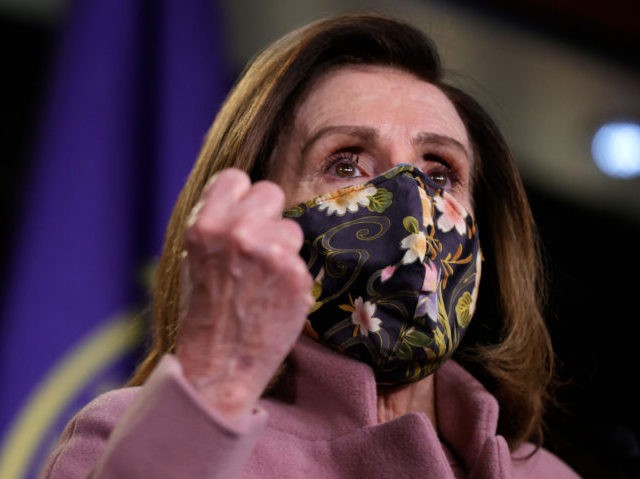A majority of voters are less likely to vote for Democrats who support policies advanced in the far-left H.R. 1, the For the People Act, a February survey by the National Republican Congressional Committee’s (NRCC) found.
According to the survey, 78 percent of voters are “less likely to vote for a Democrat who voted to allow candidates running for Congress to give themselves up to $5 million of public funds to pay for their political campaigns.” The reference parallels agenda items outlined in H.R. 1, which the Democrat-led House passed last week.
The bill would largely result in the federalization of U.S. elections, axing many states’ individual election procedures including basic voter ID laws and management of voter rolls.
Twenty state attorneys general, led by Indiana Attorney General Todd Rokita (R), wrote a letter to Senate and House leadership warning the legislation “implicates the Electors Clause” by regulating the elections for president and vice president. It also faces other major “constitutional hurdles,” they warned, due to its “regulation of congressional elections, including by mandating mail-in voting, requiring states to accept late ballots, overriding state voter identification (‘ID’) laws, and mandating that states conduct redistricting through unelected commissions.”
The legislation also provides public funds for qualifying political campaigns at the congressional and presidential levels.
“The 6:1 match would kick in for each grassroots contribution to a candidate up to $200. For example, a $200 donation to a House candidate would garner a $1,200 match in public funds for a total contribution of $1,400,” Fox News reported:
The program would begin in the 2028 election cycle and would be voluntary. Candidates would opt in by meeting donation qualifications and would be subject to certain contribution limits.
Backers of the bill say this small-dollar match program is the anecdote[sic] to getting big money and corporate interests out of elections and to allow candidates to focus on garnering support from their neighbors rather than catering to high-dollar donor fundraisers and special interests.
The provision has sparked an outcry from conservatives who say taxpayer money should not be used to fund political campaigns.
“It’s a D.C. takeover of our elections,” Rep. Lauren Boebert (R-CO) told Breitbart News last month. “This actually has tax dollars that will pay for politicians’ campaigns. It’s disgusting. No tax dollar should go to a campaign.”
The House successfully passed the measure last week. House Speaker Nancy Pelosi (D-CA) heaped praise on the measure, describing it as a means to combat “misinformation” on Democrat priorities.
She told reporters last week:
What’s exciting about it is it restores confidence that people have that their vote and their voice is as important as anyone’s. That yes. We can address the climate crisis if big, dark special interest money is not suffocating the airwaves with misinformation about how to protect the planet. We yes can have background checks passed in the whole Congress of the United States to protect our children if big, dark special interest gun lobbying money is not suffocating the airwaves. And yes, we can have lower cost of prescription drugs. The list goes on and on. We can ‘Build Back Better’ for the people in every zip code as we said in our caucus yesterday.
The NRCC survey also found 62 percent of voters are less likely to vote for a Democrat who voted to ban states from implementing basic voter ID laws.

COMMENTS
Please let us know if you're having issues with commenting.